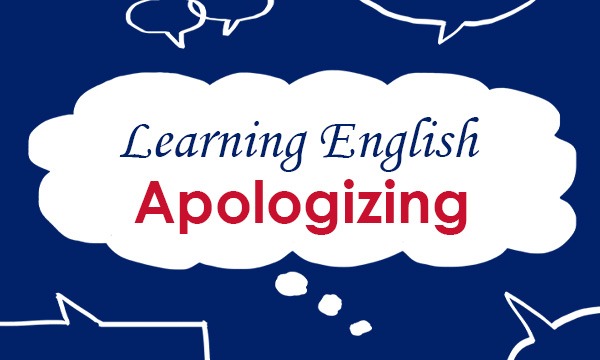
Wherever you are and whatever you’re doing, there are always situations when an apology of some kind is required. This blog helps you with what you need to say to apologize and how to respond when someone apologizes to you.
The most common way to apologize is to use Sorry … or I’m sorry …
I’m sorry – I’ve forgotten your name.
I’m sorry I’m late.
Sorry, I didn’t hear what you were saying.
Sorry, I didn’t introduce you.
I have to leave now, sorry.
If someone says sorry to you, you can reply by saying it doesn’t matter or don’t worry about it. These phrases show that you are not annoyed about the situation and that the apology is accepted.
I’m sorry – I’ve spilled your drink. — It doesn’t matter.
Sorry we’re late. — It doesn’t matter – I’ve only just got here myself.
Sorry I forgot your birthday. — Don’t worry about it.
A more informal way to tell someone that something does not matter is no worries or that’s OK.
Sorry I can’t come to your party. — No worries, I understand.
I’m sorry, I’ve eaten the last sandwich. — No worries. I’m not hungry.
Sorry about the noise. — That’s OK – it didn’t bother me.
If you want to apologize because you have to tell someone that there is a problem or that something has happened, start your sentence with I’m afraid …
I’m afraid I’m going to be late.
I’m afraid I can’t come tonight.
I’m afraid there’s a problem with your order.
I’m afraid the handle’s come off the door. — Don’t worry about it – it happens all the time.
Come back for more blogs on using English in everyday situations: https://blog.collinsdictionary.com/language-learners/learning-english/
All opinions expressed on this blog are those of the individual writers, and do not necessarily reflect the opinions or policies of Collins, or its parent company, HarperCollins.




collins_dictionary_official
The home of living language. #wotd #wordlovers #collinsdictionary
Read our word of the week definitions and blog posts: